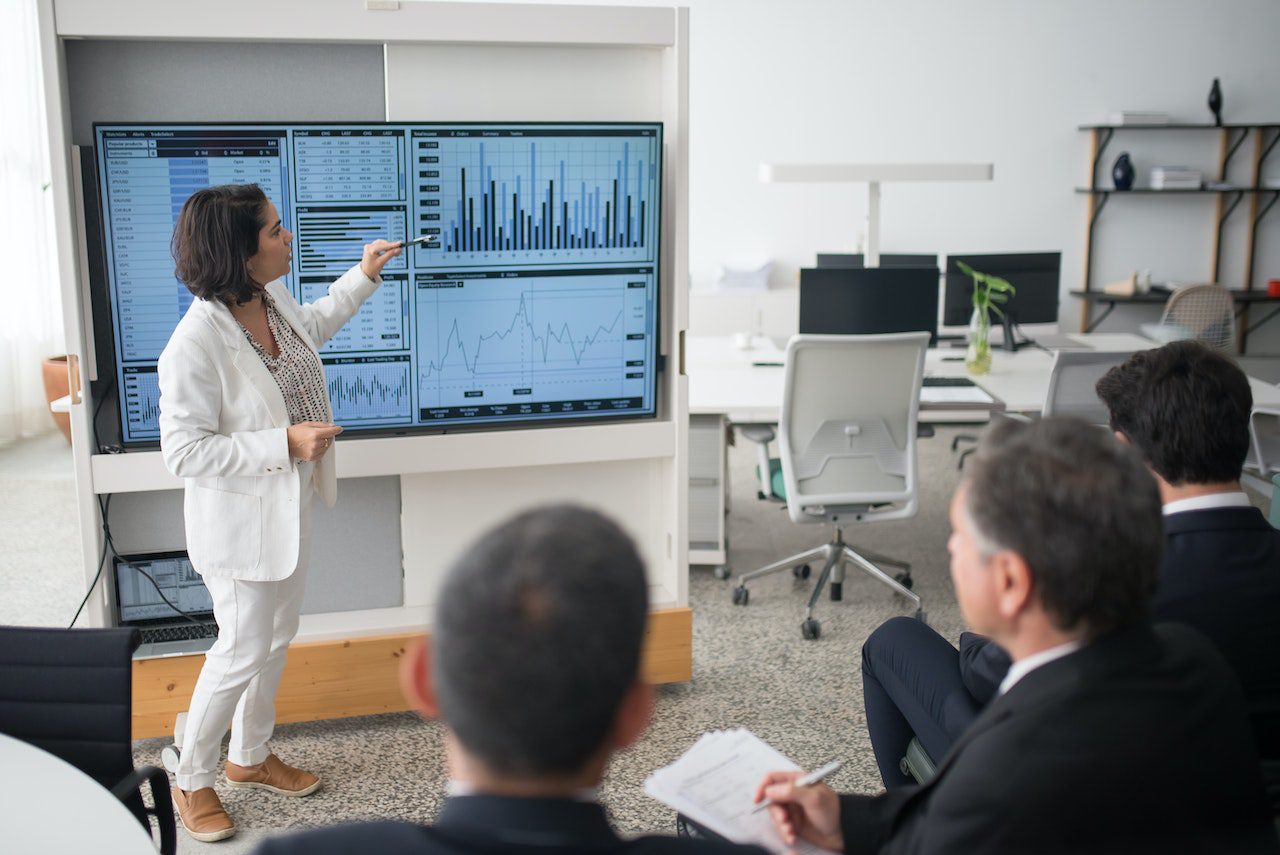
Calling Out Undergraduate Candidates, Here Are Some Tips for Building a Career Plan
December 12, 2022
6 Frequently Asked Thesis Defense Questions Students Must Know
December 13, 2022 Photo by Kampus Production From Pexels
Photo by Kampus Production From Pexels
The thesis defense is one of the most awaited moments by final-year students. However, it can be a scary moment if the students themselves aren’t prepared to face the thesis defense. Many students often think the thesis defense is the most challenging stage before graduating.
This is where students feel worried, nervous, and hopeful because they are worried that they will get critical examiners and are even afraid of being slaughtered by the examiners. Moreover, students will start to overthink when the examiner starts asking various questions that are difficult to answer.
Remember that a thesis defense mostly only happens once in a lifetime. So, make sure you can prepare the best for the trial later to ensure a smooth thesis defense session. There is nothing wrong with doing various preparations before presenting your thesis.
This is done as an anticipatory step to reduce fear and anxiety in students when approaching their thesis defense. In the following section, UMN will share tips for a successful thesis defense so that their examiners can praise students.
1. Read the contents of the thesis over and over again
The first thing you need to prepare before a thesis defense is to study and repeatedly read the contents of your thesis. Not just once but many times to make yourself more steady and ready. This is because the examiner will assess the readiness of the students in terms of material and will be tested for their knowledge of the contents of the thesis that has been submitted.
Here, you need to prepare the essential points from the contents of your thesis, for example, by using sticky notes in each part or chapter of the thesis. You don’t have to memorize everything, but at least understand the contents. Starting from the title of the thesis, what variables are used in this research, what are the research results, and so on.
Also, prepare possible alternative questions that are likely to be asked by the examiner(s). Write down questions ranging from simple to complex. That way, you can be more prepared when facing questions during your thesis defense.
Also read: Non-Academic Activities Beneficial for College Students.
2. Consult with Your Thesis Advisor
Before the defense, consult with your advisor so that you are much better prepared. Usually, students will coordinate with supervisors or advisors, especially in managing administrative files for trial registration.
If you feel stuck and unsure about the contents of your thesis, immediately ask your advisor for help. This is because your supervisor will also be your examiner during your thesis defense.
How to do it? Write down questions related to your doubts and ask them during your meeting with your advisor. In addition, conducting consultation with your advisor can indicate that the student is in line with the supervisor’s thoughts and is more confident about the input and directions given.
3. Understand the Character of the Examiners
Understanding the character of the examiners is something that also needs to be prepared, my friends. This is because the examiner is usually determined by the administration of the study program/department and their interests or focus is in line with our research topic or method.
When the examiner’s name is known, immediately seek complete information about the examiner’s character. Let’s just say that your friend has the same examiner as you; discuss it with your friend. Starting from what questions are usually asked, the nature and character of the examiner when questioning students, and the field of study mastered by the examining lecturer. You can also make an appointment for a final revision consultation after the thesis defense.
4. Don’t Forget to Practice Presenting
It should be remembered that during the thesis defense, students are only given time to present research results for approximately 10 to 15 minutes. Students are required to convey everything from the background to conclusions and suggestions in a short time. I’m sure there won’t be much time to go into more detail.
Therefore, prepare a presentation file that doesn’t have too many slides but also represents a precise delivery of the contents of your thesis. Also, prepare small notes regarding what points will be explained during the presentation.
You also start practicing and do a presentation simulation with the estimated time mentioned earlier. Practicing your presentation can minimize the risk of confusion, nervousness, and unpreparedness in presenting research results in front of the examiners. You can do this alone or with a friend.
In addition, practicing can help you adjust your intonation, choose the right words, and figure out clear explanations during presentations so that your thesis defense is good and the examiners will automatically praise you during the defense.
5. Prepare a Dresscode for The Thesis Defense
To impress the examiners, dress neatly and politely during the defense. In general, students who will carry out the thesis defense are required to wear a white shirt top, black tie, and wear their alma mater. Make sure the clothes you wear don’t give the impression of being too much from head to toe.
After that, choose clothes that make you comfortable and ables you to move freely. So, dress up before the defense, friends! When you dress neatly and politely, the examiner will be impressed and indicate that you are ready.
6. Come Early Before the Defense
When it comes to the D-day of the trial, it is advisable to arrive early. At least 30-60 minutes before the trial so you can check the room and presentation equipment to minimize the occurrence of technical errors during the trial. If you come too casually and are almost late, it will only add to your feeling of nervousness and panic during the trial.
Before leaving for the trial, be sure to ask for the blessing of both parents and pray for smoothness and convenience in your thesis defense later. Make sure everything is ready. You can also check all the presentation equipment in the room where you’d be presenting. From the LCD, projector, remote, cables, plugs, and others, ensure they are in good condition and can be operated. If there are problems while checking the presentation equipment, immediately contact the technician or study program/department officer who oversees the room.
7. Answer as Many Questions from The Examiner as Possible
When the presentation is over, the examiners will provide you feedback, whether in the form of questions, inputs, or suggestions. During the question and answer session, if the examiner starts asking questions, pay attention to the contents of the question first, then answer it. Don’t forget to say thank you when answering questions and try to answer from what you have learned in your thesis.
If you feel like the question given by the examiner is difficult to answer, answer as best as you can. Avoid providing arguments that don’t make sense or are based on words without any theoretical basis. If this is the case, the examiner will immediately deny you. Be careful when answering, so think first. Avoid also denying the examiner’s arguments. Convey it well and wisely with proper language.
If you get an input from the examiners, accept the input as well as possible. Listen carefully to the examiners’ various responses and points of view, and take note of them so that you’ll be able to use them as a guideline when doing revisions.
8. Immediate Revision, Don’t Delay
After the thesis defense is over, your work doesn’t stop there. You still need to go through revising your thesis paper in accordance with the feedback provided by the examiners. Revisions are done to perfect the thesis’s contents before students submit the final thesis to the library. Revise immediately, and don’t delay.
Usually, the examiners will provide a deadline for revisions. Make sure you don’t exceed the revision limit. Immediately fix and accommodate the inputs from the examiners for follow-up.
Also read: Get to know the UMN Film & Animation Program.
Those are the tips for succeeding in your thesis defense that you can apply. Remember, all the feelings you are feeling during a thesis defense are normal and are felt by many final students.
However, you also have to believe that you can deal with it. Later, in the end, you will realize, “wow, turns out I can stay strong to get through these things.”
Keep up the spirit in completing your thesis! For those who are interested in continuing their studies at UMN, you can join directly via umn.ac.id.
Source:
By Reyvan Maulid
English translation by Levina Chrestella Theodora
Kuliah di Jakarta untuk jurusan program studi Informatika | Sistem Informasi | Teknik Komputer | Teknik Elektro | Teknik Fisika | Akuntansi | Manajemen| Komunikasi Strategis | Jurnalistik | Desain Komunikasi Visual | Film dan Animasi | Arsitektur | D3 Perhotelan , di Universitas Multimedia Nusantara. www.umn.ac.id





